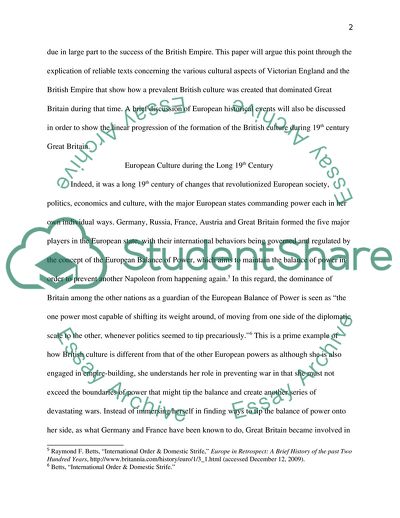Cite this document
(British Culture During the Long 19th Century (1780-1914) Assignment, n.d.)
British Culture During the Long 19th Century (1780-1914) Assignment. https://studentshare.org/culture/1731202-british-society-and-culture-1780-1914
British Culture During the Long 19th Century (1780-1914) Assignment. https://studentshare.org/culture/1731202-british-society-and-culture-1780-1914
(British Culture During the Long 19th Century (1780-1914) Assignment)
British Culture During the Long 19th Century (1780-1914) Assignment. https://studentshare.org/culture/1731202-british-society-and-culture-1780-1914.
British Culture During the Long 19th Century (1780-1914) Assignment. https://studentshare.org/culture/1731202-british-society-and-culture-1780-1914.
“British Culture During the Long 19th Century (1780-1914) Assignment”. https://studentshare.org/culture/1731202-british-society-and-culture-1780-1914.


